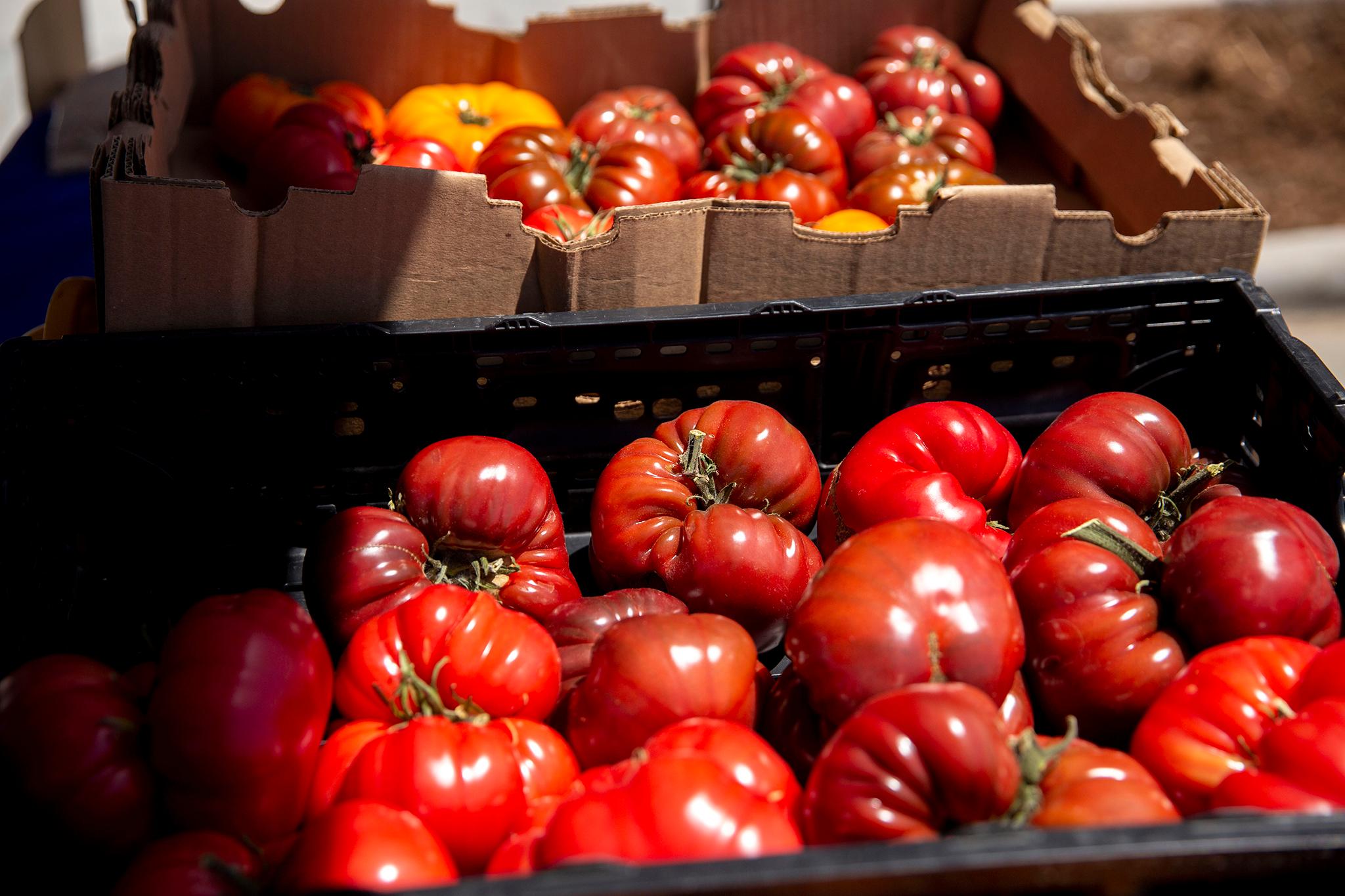Plump heirloom tomatoes, zucchini and peppers went from farm baskets into customers' bags on Saturday beneath a tent on the side of the road in Elyria Swansea. The lot behind this pop-up market was once a fenced-off industrial yard. Today, it's a massive housing building that will be occupied, in part, by a community healthcare clinic run by the Tepeyac Community Health Center. Soon, veggies like these gathered by the East Denver Food Hub will be for sale all the time in a store slated to move into the building's first floor. Noir Market will be the first real grocery in this neighborhood in a very long time.
Shabasa Sayers and his daughter, Anjanet, have been working on Noir Market for the last year. It began with pop-up events in Montbello, a place where residents could shop for produce, readymade lunch and gifts made by Black entrepreneurs. They've recently moved their operation to Elyria Swansea; Saturday was their first appearance in the area.
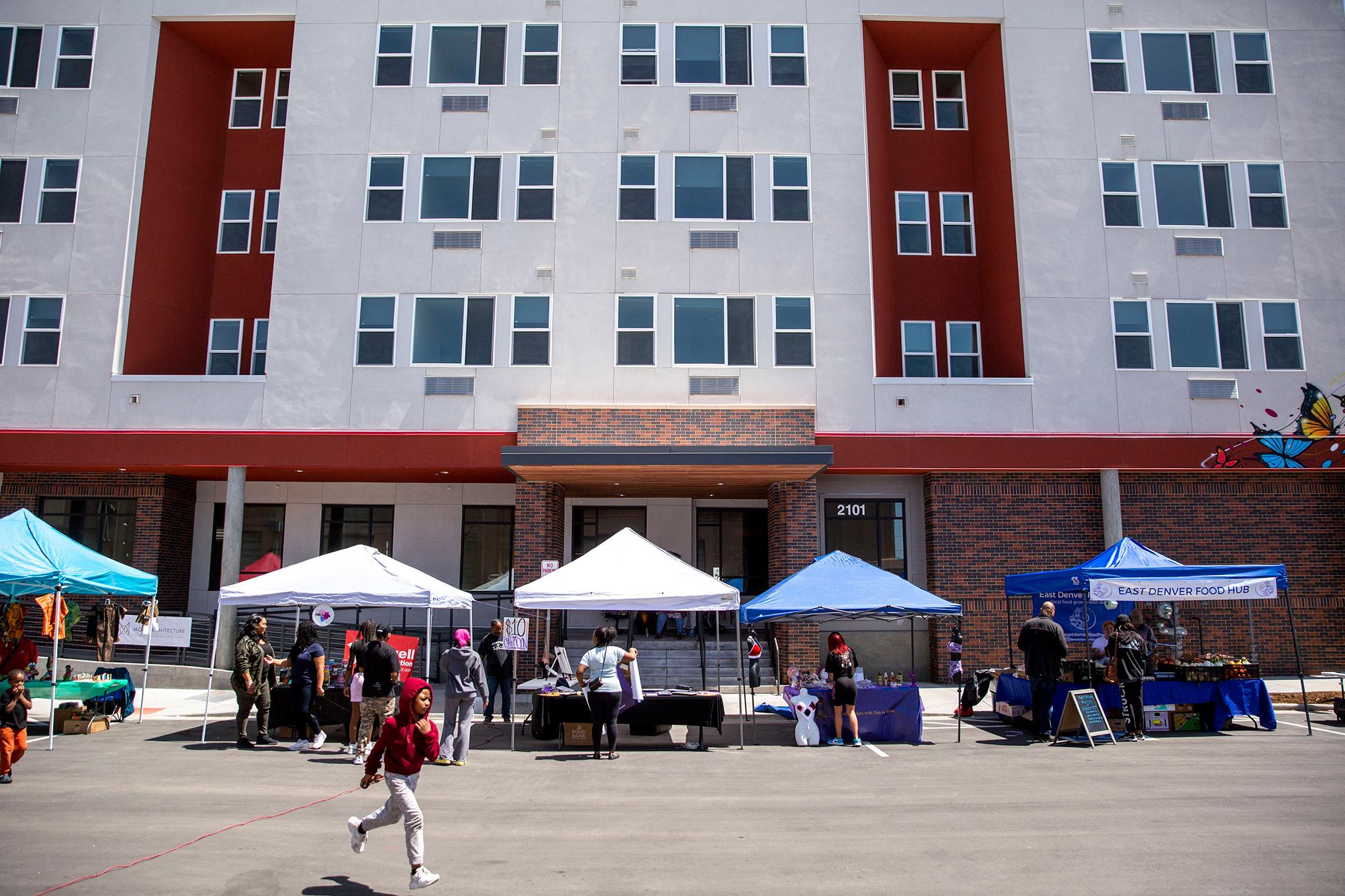
In 2020, City Council member Candi CdeBaca began convening a "Food Desert Solutions stakeholder advisory group" to work on healthy food access in her district. The effort birthed the East Denver Food Sovereignty Initiative, a collective of community groups, farmers and distributors that aim to pay fair prices to local growers and get their products in neighborhoods that need them most. The organization helped developer Columbia Ventures connect with Noir Market in a process that Sayers said began a few months ago and moved extremely quickly.
"We heard about the spot through Councilwoman Candi and started checking it out," he told us. "As soon as we started meeting, things went 100 miles an hour."
Stakeholders toured the space last month and put down an offer. Sayers said build-out will start soon, and that they're "pushing hard" to open up in June. He plans to offer food on a "pay-what-you-want" basis one day a week, a concept he's tried out at his pop-up markets.
Sayers also told us he wants to offer credit to families that make too much money to qualify for food stamps but still need help purchasing groceries. It's a situation that's become more common since the pandemic started, evidenced by massive demand spikes at local food pantries. Food insecurity has long been a problem in parts of Denver, Sayers said, so a grocery store that prioritizes access is a big deal.
"It's been needing to happen for years. The pandemic just showed our weaknesses in the city," he told us. "People had to get hungry."
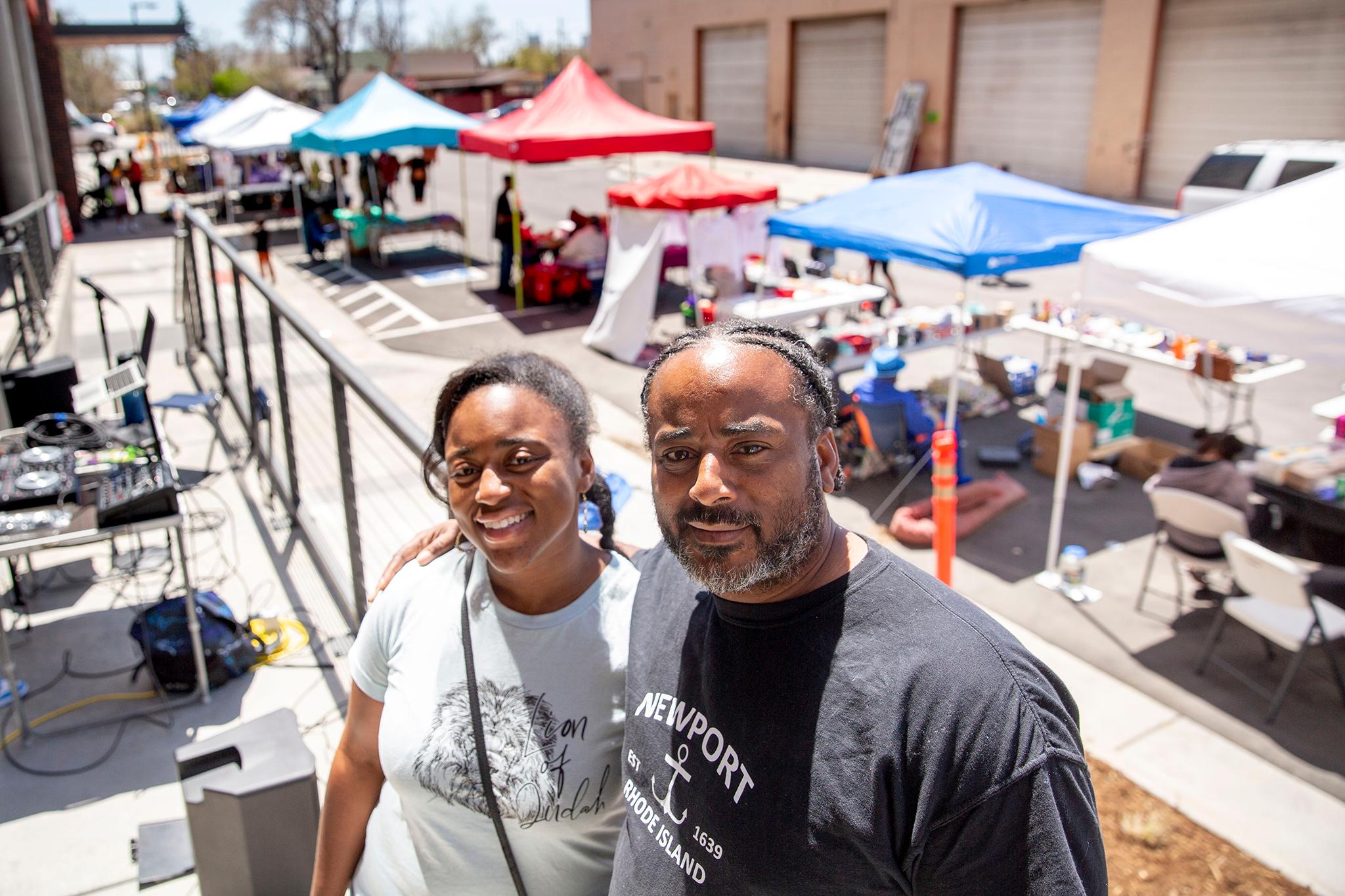
Council member CdeBaca told us Elyria Swansea hasn't had a grocery store since the now-demolished I-70 viaduct was constructed in the 1960s. She said Columbia Group has worked with her food access group to make sure community needs are met with their development.
Though projects in Elyria Swansea always come with "huge concerns" that development could spur gentrification, she said longtime neighbors' input and access to the space represents a fundamental change in their social power. She said neighbors are scrutinizing every new project and demanding that changes are beneficial.
"The neighborhood's focus has shifted so far from surface-level demands," she told us. "This is the new model. Community wants to own our food economy. We don't want to be subject to racist and elitist formulas that will always lock us into poor food access or gentrification at our own expense, and this is a way for us to really be solving food access and health at the same time."
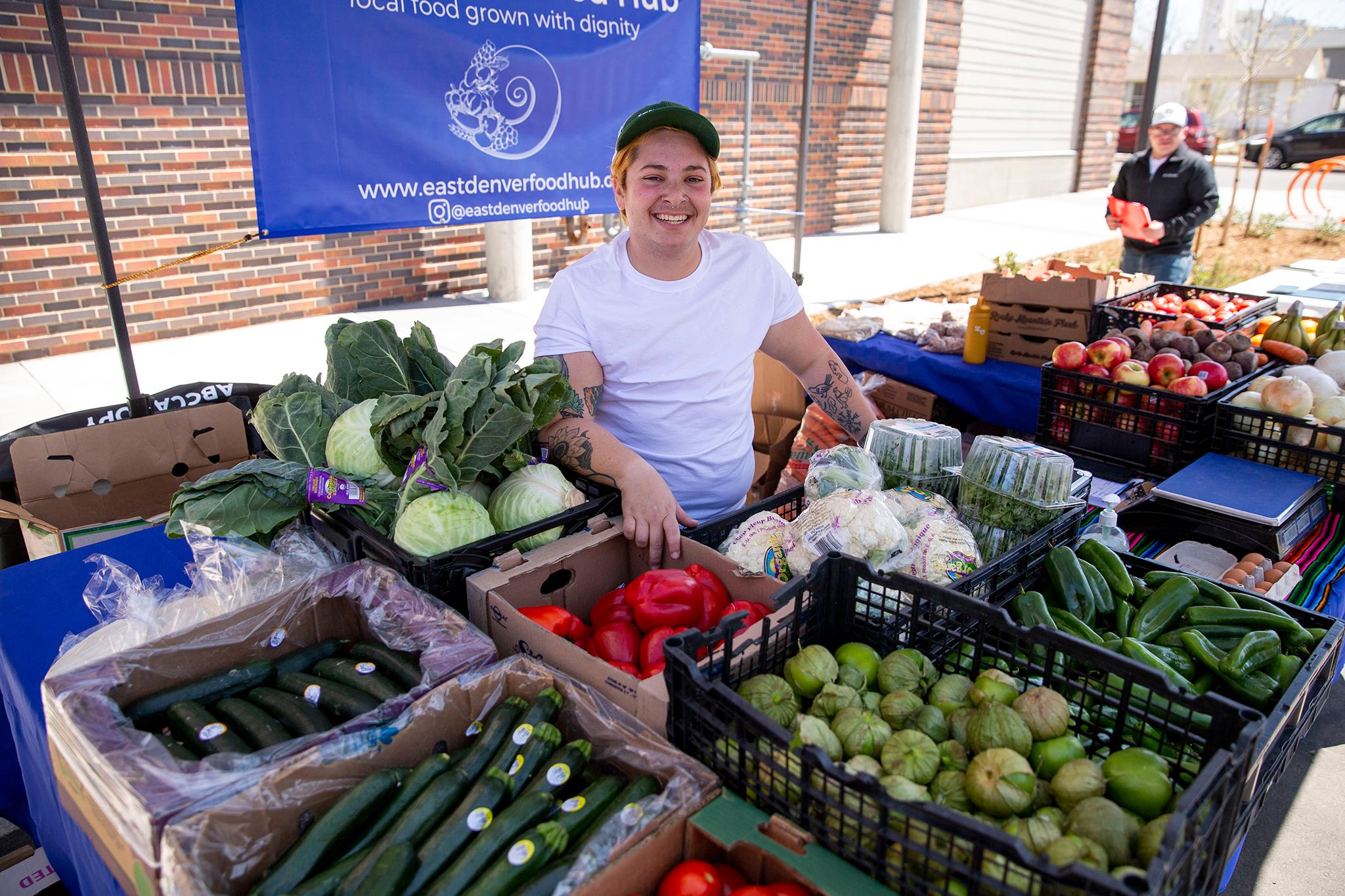
Al Goodman, who works with the East Denver Food Hub that will supply much of Noir Market's produce, said the organization will prioritize local growers in a way that lets them keep their small farms going. Right now, the Food Hub is distributing more than $15,000 a week in produce to food access organizations like pantries and delivery services, and they expect that number will grow substantially this summer.
This is about more than providing healthy eats in a food desert, Goodman said. It's about upending a corporate food system that disenfranchises small suppliers and makes Denverites rely on grocery chains that historically have not built stores in underserved neighborhoods.
"We are looking to build a food ecosystem in which farmers are supported and consumers are supported," they told us, taking a break from selling juicy heirloom tomatoes that were grown in Longmont. "We don't like seeing injustice and we don't like seeing a lack of progress."
So, in that spirit, Goodman's organization has been working to help give their products a permanent home in the neighborhood.
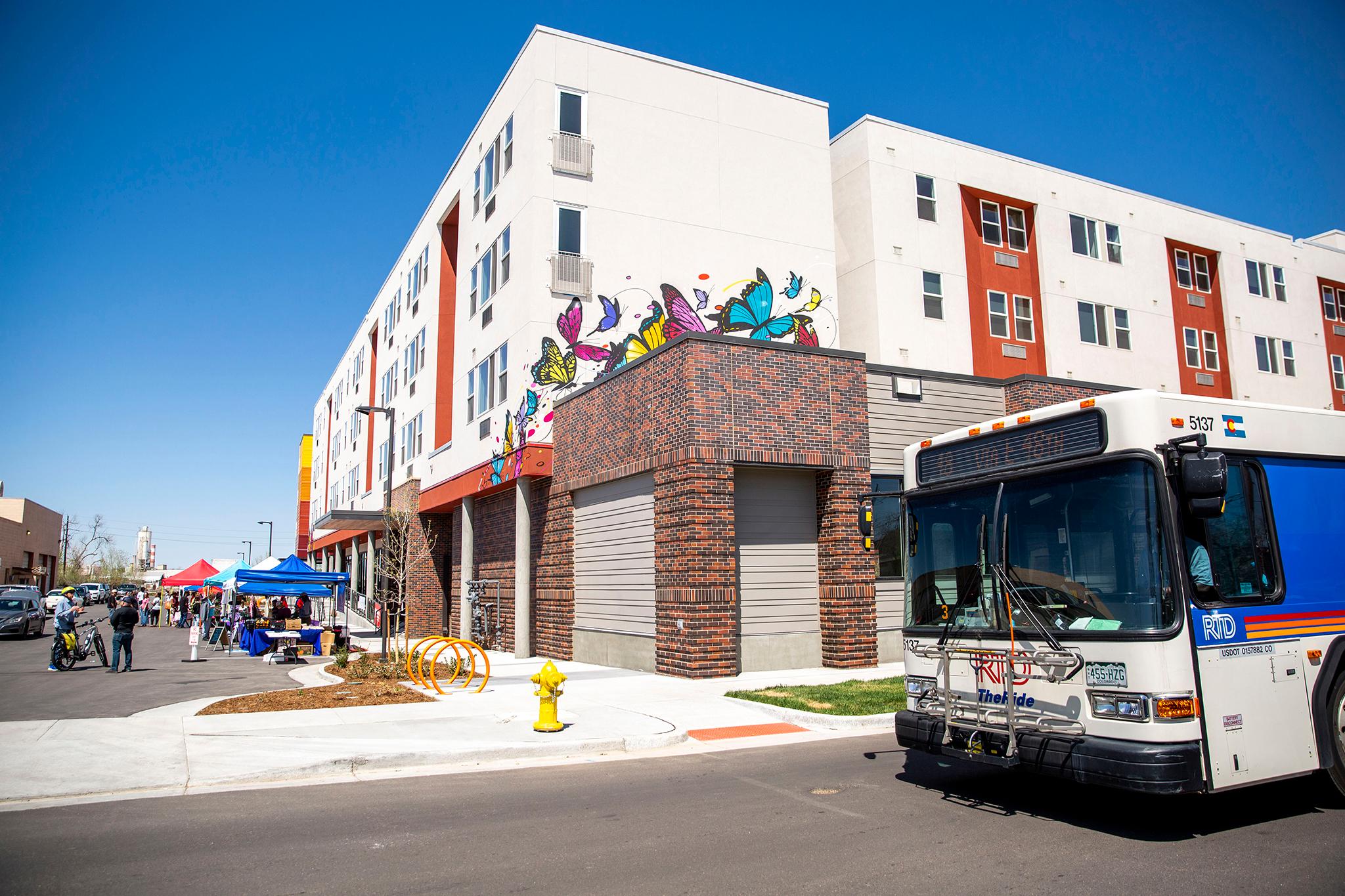
Sayres said he's thrilled to get this new venture up and running. Anjanet, his daughter, called it one of her "heart projects." She's been canvassing homes in the neighborhood with flyers about the grocery store, and she said a lot of residents are grateful and excited to see it open.
In addition to Noir Market, a health clinic and housing, the new building will also host an eatery helmed by a local restauranteur and a commissary kitchen to help neighborhood entrepreneurs turn their cooking talents into income.

